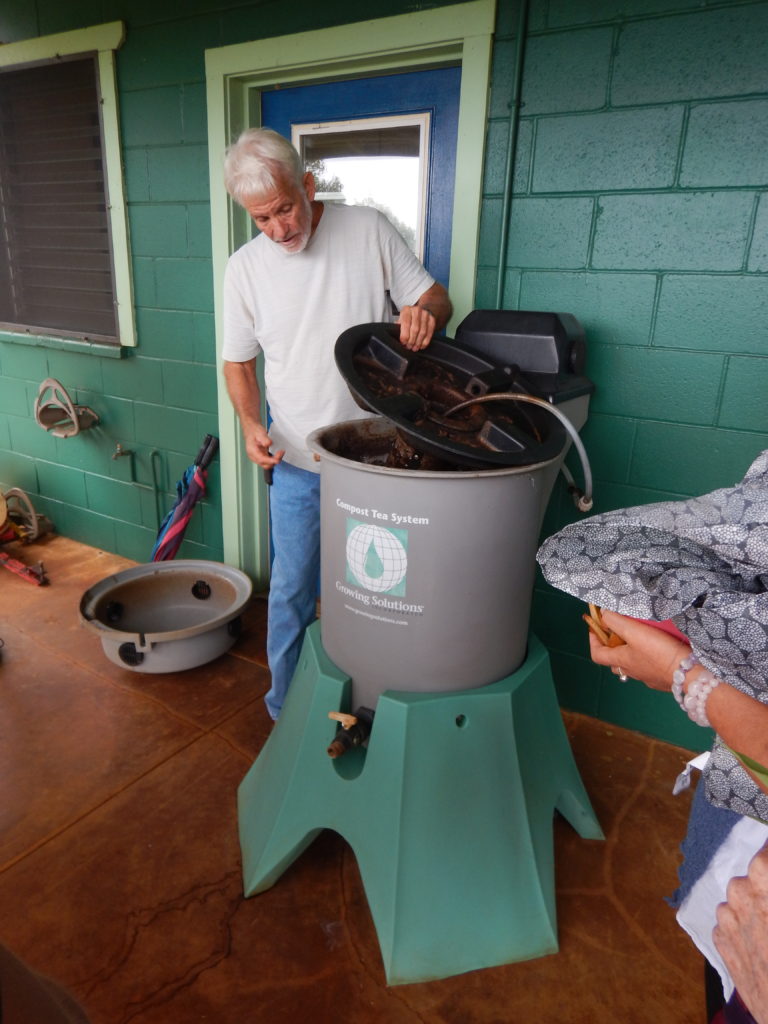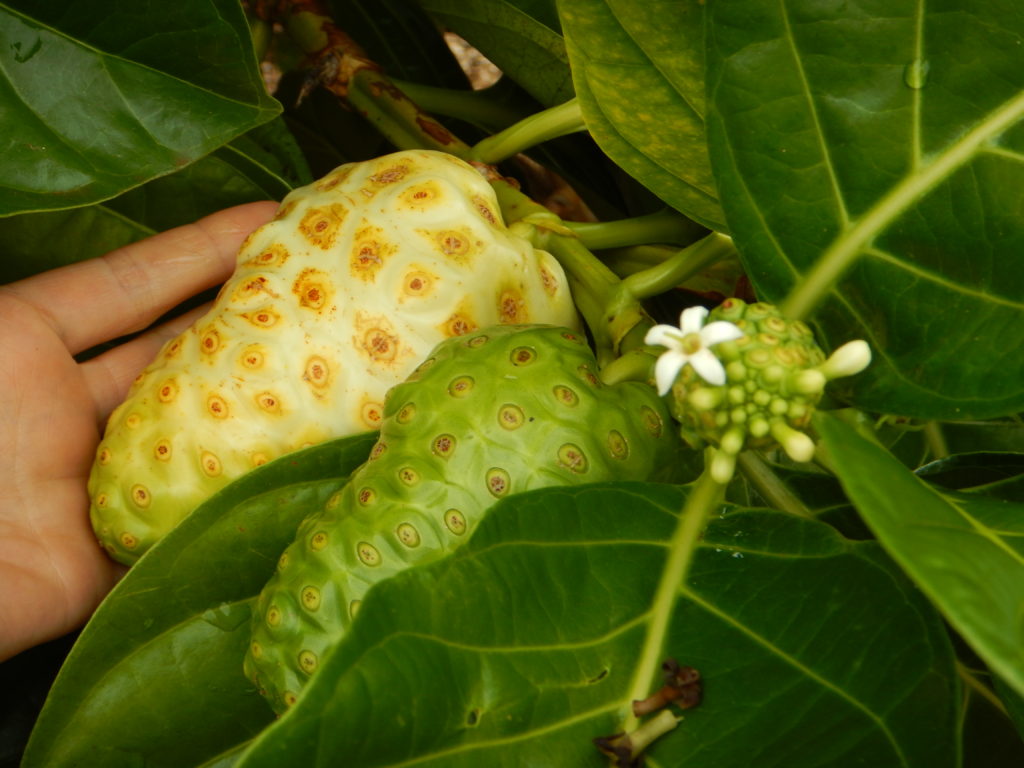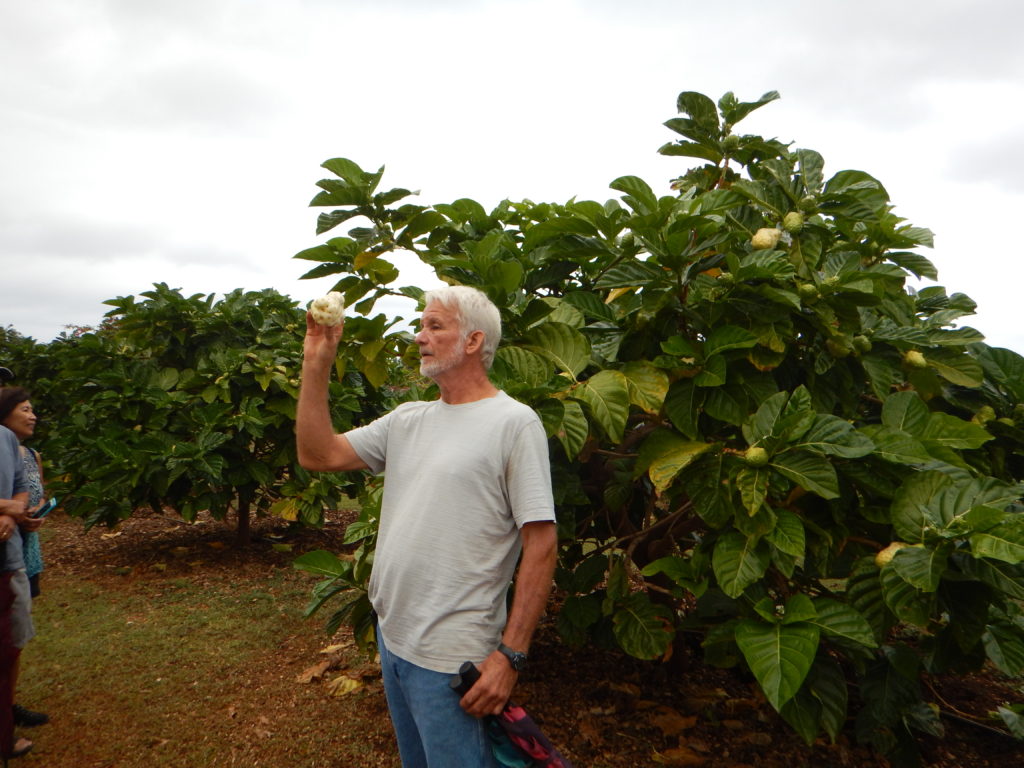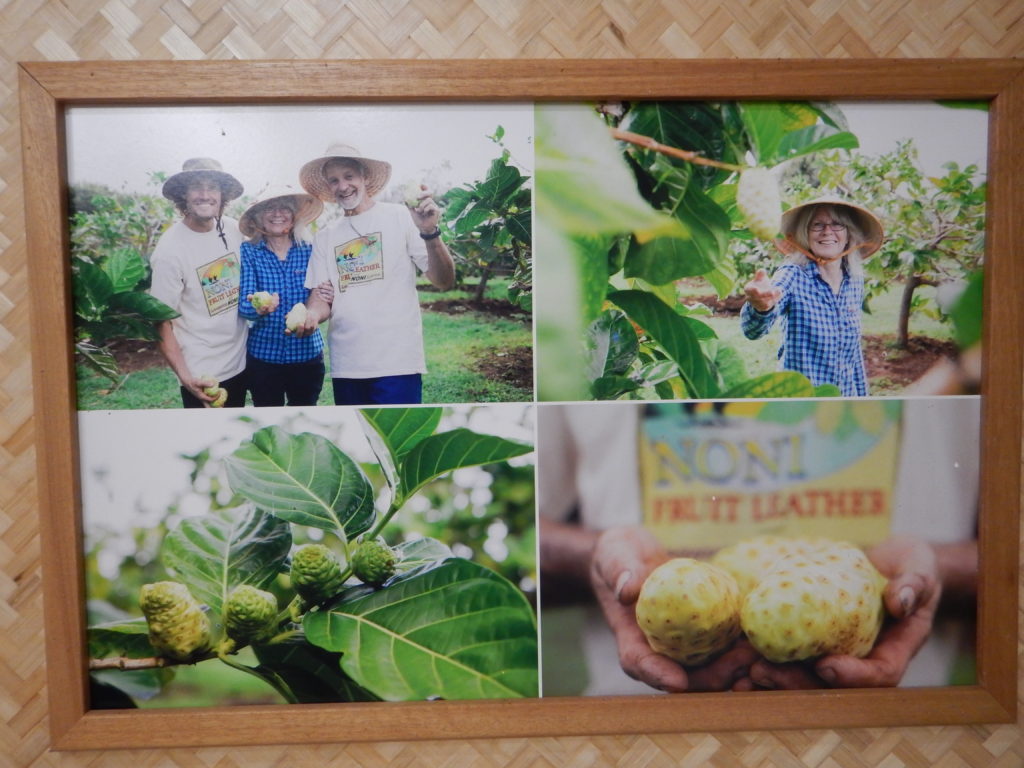You’re going to want to know, that’s for sure!
Noni, an apparent cure-all fruit, was chosen by the ancient Polynesians to be one of their few precious boat plants when they took to the seas to settle new islands. The ancients ate it raw as a part of their normal diet, contributing to the relative nonexistence of inflammatory-related health conditions recorded for that culture. Traditionally eaten fermented these days, the raw version is very potent, with well over 160 chemicals present.
Realizing the potential benefits, Steve Frailey decided to start a noni farm on Kauai. Using data on rainfall and sunny days from the military (that surveyed the whole island once upon a time) he picked the perfect spot on the island, with optimal growing conditions, for this fast-growing tropical fruit.
We were lucky enough to meet Steve at a local farmers market on the island and he invited us to visit his family’s farm for a tour, which he occasionally gives in smaller scale!
On the farm, we not only learned about the benefits of the fruit leather they make (substantial since it remains RAW), but also about the benefits and cornerstones to organic farming. Let me know if you’d like some more details!

He showed us the three cornerstones:
-1. Mulching (to hold moisture) to the edge of the ring of branches
-2. Composting (adds extra nutrients and organic material to the soil, feeding the worms and the microorganisms in the soil, who even mix it in for you)
-3. Making compost tea, to spray lightly on the underside of the leaves at late afternoon or dusk, when the leaves open up to take in the nitrogen rich moisture from the air
Steve has a great website where they explain the benefits and uses of noni, as well as have a large collection of scientific studies backing it all up! Here is his website:
https://www.real-noni.com/Noni-Fruit-Leather-Hawaiian-Organic-Noni/





Oh good, did you selling it?
Hi Aprilia, I don’t sell it directly, but when I was at Steve’s farm I got his website.
You can check it out and order it from him: http://www.RealNoni.com
Best,
Amber
I will share with others and thank you for your information
nice post
thanks